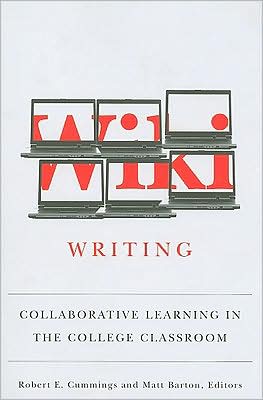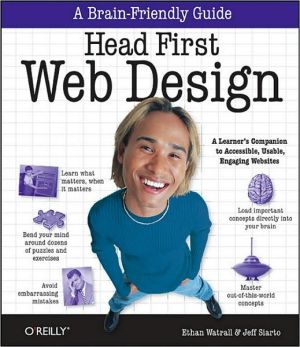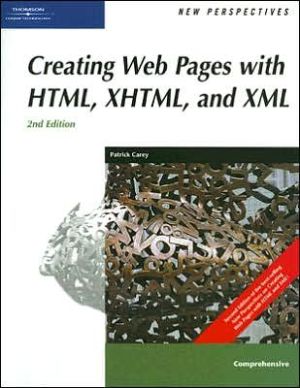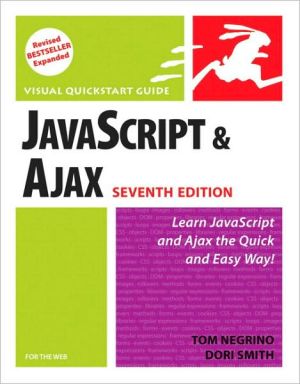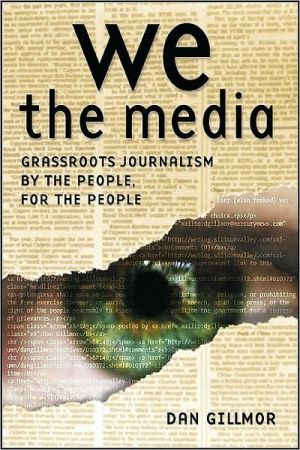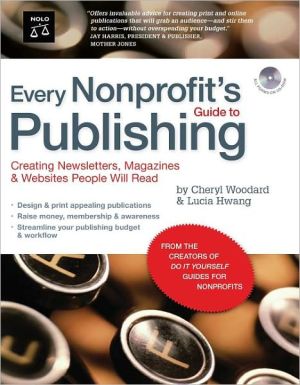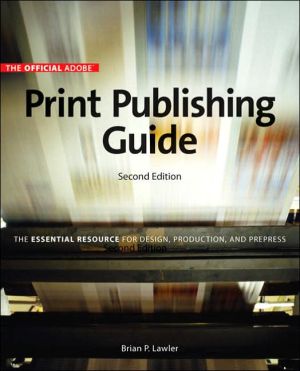Wiki Writing: Collaborative Learning in the College Classroom
When most people think of wikis, the first---and usually the only---thing that comes to mind is Wikipedia. The editors of Wiki Writing: Collaborative Learning in the College Classroom, Robert E. Cummings and Matt Barton, have assembled a collection of essays that challenges this common misconception, providing an engaging and helpful array of perspectives on the many pressing theoretical and practical issues that wikis raise. Written in an engaging and accessible manner that will appeal to...
Search in google:
An indispensable and engaging guide to using wikis in the classroom
WIKI WRITING\ Collaborative Learning in the College Classroom \ \ THE UNIVERSITY OF MICHIGAN PRESS\ Copyright © 2008 Robert E. Cummings and Matt Barton\ All right reserved.\ ISBN: 978-0-472-11671-3 \ \ \ Chapter One\ Robert E. Cummings\ What Was a Wiki, and Why Do I Care? A Short and Usable History of Wikis\ The meeting occurred on October 7, 2006. On a Milledgeville, Georgia, campus, the new leader of the university system of the ninth largest state in the nation met with a potentially fractious body, Georgia's chapter of the American Association of University Professors (AAUP). This educators' union has a reputation for confronting administrators, and while the new chancellor had been on an eight-month tour of the state's thirty-five campuses, he was only then addressing the thorny issues advanced by this academic crowd.\ The toughest issue on the agenda was labeled as "shared governance." But, in reality, the power shift at hand was typical of the now familiar conflict between traditional hierarchical power structures and flatter, more cooperative power structures popularized by Manuel Castells. The new chancellor had a business background, which would seem to identify him squarely with a hierarchical power structure. Yet these university professors had, over time, improved their position of power sharing by increasing both their access to and theirresponsibility for decision making on the state's campuses. The teachers in that room clearly felt that students, parents, teachers, and taxpayers benefited from a university system that sought input from all ranks before making decisions on planning and budgeting. But the chancellor's stance sounded more like a power entrenchment in his office rather than power sharing among the faculty as a whole.\ I recognize that in higher education, there exists a very well-established culture of shared governance, and you of course recognize I did not grow up within that culture.... I do believe in that well-worn adage that when every one is responsible no one is responsible.\ While the chancellor amicably characterized responsible leadership as attentive to broad input, he clearly envisioned a hierarchical power structure for the state's body of creating and disseminating original knowledge. If anyone in the audience found these remarks anachronistic or ill-informed, no such response was indicated in the AAUP newsletter that reported on the chancellor's speech. Before the advent of the wiki, or, more specifically, Wikipedia, these comments, and this meeting, would have been routine.\ But Wikipedia has made it clear that the business of knowledge creation has been irrevocably altered. Before Wikipedia, the act of creating and disseminating reliable knowledge was entrusted largely to those holding advanced degrees and offering statements that were vetted by the same crowd. Wikipedia has clearly demonstrated, however, that knowledge can be created and disseminated by people who may or may not be credentialed, who contribute as little or as much as they like, who do not need to wait for approval or other works, and who are motivated by something more elusive than cash. No, the statements in Wikipedia are not always reliable. But as the Nature study has shown, they cannot simply be dismissed as unreliable either. Wikipedia has fundamentally and finally altered epistemology itself-our commonly held ideas about knowledge. For the academy at large, the significance of Wikipedia is roughly equivalent to that which the Heisenberg uncertainty principle had in the sciences in the 1920s-stating what is not possible rather than what is. It is no longer possible to plan, tax, and budget for universities as if their model of knowledge creation is the only epistemological path. No matter how improbable it might seem that a Web page that anyone can edit would lead to valuable knowledge, Wikipedia makes clear that there is now another model for knowledge creation. And it also recasts the comments of the diplomatic chancellor in a supremely ironic light: here is the leader of a massive state system for knowledge creation stating that "when every one is responsible no one is responsible," while he, and certainly everyone in that audience, has probably relied upon a knowledge acquisition path-from Google to Wikipedia-for which everyone is responsible and no one is responsible at once.\ But bureaucratic inertia in the face of a tectonic knowledge shift is not the focus of this essay. Rather, this introduction hopes to show nonbelievers, the uninitiated, and wiki followers alike that the simple act of allowing a Web page to be edited by a reader-which is really all that a wiki does-has created a global transition to networked epistemology that affects most anyone who is concerned with knowledge acquisition, whether it is defined broadly, as the search for teleological ends, or narrowly, as the search for Chinese takeout. I want to introduce this collection, then, by providing interested readers a brief history of the wiki and a bit of thought on what it portends for knowledge creation and acquisition.\ Wiki, or Wikipedia?\ Your author (approaching an acquisitions editor at a book fair): Hi. I'm wondering if I can share a manuscript proposal with you.\ Well-meaning acquisitions editor: Sure. What's the book about?\ Your author: Wikis!\ Well-meaning acquisitions editor: Oh. We don't do books on the occult. But if you want, I can give you some ideas on where to look.\ Your author: The occult? No. Wait-I didn't say "Wiccans," I said "Wikis."\ Well-meaning acquisitions editor: What's a "wikis"?\ Your author: No, "wiki"-singular. Well, it's a Web page. Which anyone can edit. Usually, but not all the time. I mean, it's an electronic mailing list with memory. It's really a collaborative Web space where the mechanics of epistemology and the politics of knowledge creation can be revealed and explored.\ Puzzled acquisitions editor: (silence)\ Your author: You ever heard of Wikipedia?\ Well-meaning acquisitions editor: Oh! Wikis!\ Understanding the history of the wiki is inextricably bound up with Wikipedia. This is simply due to the fact that it is clearly the largest wiki with the greatest cultural impact. In fact, probably only a handful of users beyond the initial group of programmers who created the first wiki had their first encounter with a wiki other than Wikipedia.\ But there are significant problems with conflation of all wikis with Wikipedia generally. As we explore the short history of wikis, it is important to examine three key ways in which Wikipedia differs from other wikis. First, Wikipedia is an online encyclopedia (or at least it claims the encyclopedia as a model-it diverges from those expectations in some significant ways). Other wikis may or may not adopt the model of an encyclopedia for deciding what should or should not be posted.\ Second, Wikipedia started as an open wiki, meaning that anyone who visited the Web page could edit the content. As time passed, it limited its access, but it remains substantially open. And third, and most important, Wikipedia should be acknowledged as much a knowledge creation methodology as a wiki. Plenty of people rely on Wikipedia for timely and knowledgeable references to millions of topics; others eschew it for its lack of editorial control. Other wikis, with a more clearly defined topic, might behave much differently once reaching the number of articles Wikipedia has achieved-or once becoming a large database. But once a wiki grows as large as Wikipedia, it assumes multiple roles. Thus Wikipedia is not only a reference source, but it is the acknowledged site on the Web for claiming an interpretation of knowledge, as well as a place for controlling public image on an important figure. Both of these functions are substantial and substantially beyond the scope of a traditional encyclopedia.\ As we go forward exploring wiki history, it is critical to always understand ways in which other wikis might differ from Wikipedia. But that important exception does not diminish the fact that in order to understand the historical impact of wikis on our culture, and the potential impact on the future, one must begin by reviewing the vanguard of wikis in popular consciousness, Wikipedia.\ Origins\ The wiki had a coming out party, a debutant ball in large, popular, old media outlets, in the fall of 2004. Multiple mainstream publications including Time, Business Week, Newsweek, and PC Magazine introduced this "new" technology to their readers with articles bearing titles such as "What's a Wiki?" "It's Like a Blog, But It's a Wiki," and "Something Wiki This Way Comes." For most writers, the story was Wikipedia. After all, the idea of an online encyclopedia that anyone could edit was quite a novelty. Initial reviews compared the wiki to the blog and generally listed it as the official "next big thing on the Internet" (only to be replaced by Web 2.0 months later). But the more technical analyses acknowledged that there was a difference between a "wiki" and "Wikipedia" and focused on the platform that permitted collaborative authoring, tracing its roots to the software programmer Ward Cunningham rather than focusing strictly on Jimmy Wales and Wikipedia.\ The technical definition of a wiki is, surprisingly, the easiest to understand. A wiki is a Web page that users can modify. The earliest known wiki, the WikiWikiWeb project, was envisioned essentially as a software development tool. On May 1, 1995, Ward Cunningham posted a note to the "Patterns" electronic mailing list. Patterns is an e-mail list of software developers gathered under the moniker "the Hillside Group" to "build on Erich Gamma's foundation work studying object-oriented patterns, to use patterns in a generative way in the sense that Christopher Alexander uses patterns for urban planning and building architecture."\ Cunningham had developed a database to collect the contributions of the e-mail list members. He had noticed that the content of the electronic mailing list tended to get buried, and therefore the most recent post might be underinformed about posts that came before it. The way around this problem was to collect ideas in a database and then edit those ideas rather than begin anew with each e-mail list posting. Cunningham's post states, "The plan is to have interested parties write web pages about the People, Projects and Patterns that have changed the way they program. Short stories that hint at patterns are welcome too." As to the rhetorical expectations, Cunningham added, "The writing style is casual, like email or netnews, but doesn't have to be so repetitive since the things being discussed don't disappear. Think of it as a moderated list where anyone can be moderator and everything is archived. It's not quite a chat, still, conversation is possible." Torn down to its basic terms, then, the wiki is a software piece that combines the contemporaneous focus of an electronic mailing list with the data storage capabilities of a database. It's an e-mail list with a memory.\ But it is equally important to remember the context of the wiki's origin-as a tool for software development. Discussions on an electronic mailing list in an applied sciences community would operate under fundamentally different rhetorical constraints than an open-source encyclopedia such as Wikipedia. As it was originally conceived, readers of the first wiki would share a common goal of producing a verifiable product, a working piece of software. Therefore, both its audience and its writers would have a shared lexicon; shared worldview; and, most important, shared means of verifying truth-the software product. The end goal of a wiki conversation could be confirmed or discredited by the results of a software project. Either the resulting software worked as intended, or it didn't. This is not to say that all discussions on Cunningham's wiki were either practical or even related to software development. Surely many conversations were open-ended or even off-topic. But the important fact remains that these software developers formed a rhetorical discourse community-or a community that defines meaning through the context of shared values-and provided themselves with a means of verifying or discrediting the contents of the wiki.\ Compare that situation with the controversy surrounding Wikipedia. Wikipedia works because of the massive scale of the Internet; there are simply so many users that articles can be destroyed and reconstructed overnight because enough readers on any given topic are invested in the discussion. These readers/contributors can be the "wikizens," or frequent contributors to Wikipedia who share a set of protocols for contributions, or casual visitors. Thus this rhetorical discourse community is radically different from the Patterns group that created the wiki precisely because the Wikipedia community has no shared assumptions on defining and verifying truth. Viewed from a mechanical perspective, then, trouble comes when the perpetually posted content of the wiki, or its e-mail list behavior, is measured against its own database. The basis of many critics' complaints with Wikipedia lies in the fact that they view the project against the ideal of a singular, verifiable truth, while Wikipedia envisions itself as a project wide enough to host competing truths.\ Nupedia to Wikipedia\ Although Cunningham developed the first wiki in 1995, it was not until 2000 that an erstwhile options trader named Jimmy Wales began a project entitled Nupedia. Nupedia was to have been an Internet encyclopedia that followed the traditional model of peer review to create encyclopedia articles. It lasted from March 2000 until September 2003, completing only twenty-four articles. Wales then reversed course and created the completely open Wikipedia, placing it on wiki software and allowing anyone to edit articles. The well-documented growth of the encyclopedia has been phenomenal. During its first year of operation articles were created at the rate of fifteen hundred per month, jump-started in part due to references on the popular Web site Slashdot.org. The encyclopedia quickly expanded to include articles in other languages. Near the time of composing this essay, the English language version contained 1.5 million articles. The basic ideas of how Wikipedia operates, and how it has grown, while novel, are fairly well documented. What is significant in the shift from Nupedia to Wikipedia is its epistemological impact: the move represented not only a change in software platforms but, more important, a change in terms of knowledge development. Ideas in this online encyclopedia were no longer to be peer-reviewed by authorized sources. The jobs of topic selection, content development, review for relevance, and review for accuracy now fell to anyone who would take up the task. The trade-off was obvious: knowledge could be produced rapidly, with much greater responsiveness, with much greater agility, and eventually with a much more comprehensive focus. But could this knowledge be trusted?\ The most compelling way to measure the cultural influence of wikis may be through the history of Wikipedia conflicts about knowledge production. I suggest in what follows that there are five major stages in the cultural history of Wikipedia: the Robert McHenry article, the Nature study, the Seigenthaler incident, Colbert's truthiness, and the advent of Wikia. Each stage evidences a new aspect in the central question over Wikipedia: namely, can its knowledge be trusted?\ The Robert McHenry Article\ In 2004 Robert McHenry, former editor in chief of Encyclopedia Britannica, brought forth the most infamous and apt criticism against wikis to date. In "The Faith-Based Encyclopedia," McHenry defines Wikipedia as a Web site where\ Anyone, irrespective of expertise in or even familiarity with the topic, can submit an article and it will be published.... Anyone, irrespective of expertise in or even familiarity with the topic, can edit that article, and the modifications will stand until further modified. Then comes the entirely faith-based step: ... some unspecified quasi-Darwinian process will assure that those writings and editings by contributors of greatest expertise will survive; articles will eventually reach a steady state that corresponds to the highest degree of accuracy.\ (Continues...)\ \ \ \ \ Excerpted from WIKI WRITING Copyright © 2008 by Robert E. Cummings and Matt Barton . Excerpted by permission.\ All rights reserved. No part of this excerpt may be reproduced or reprinted without permission in writing from the publisher.\ Excerpts are provided by Dial-A-Book Inc. solely for the personal use of visitors to this web site. \ \
What Was a Wiki, and Why Do I Care? A Short and Usable History of Wikis Robert E. Cummings 1Wikis and the Scholarship of Teaching and LearningWikis in the Classroom: A Taxonomy Mark Phillipson 19Wiki Justice, Social Ergonomics, and Ethical Collaborations Jonah Bossewitch John Frankfurt Alexander Sherman Robin D. G. Kelley 44Building Learning Communities with Wikis Dan Gilbert Helen L. Chen Jeremy Sabol 71Success through Simplicity: On Developmental Writing and Communities of Inquiry John W. Maxwell Michael Felczak 90Wikis in Composition and Communication ClassroomsDisrupting Intellectual Property: Collaboration and Resistance in Wikis Stephanie Vie Jennifer deWinter 109Agency and Accountability: The Paradoxes of Wiki Discourse D. A. Caeton 123One Wiki, Two Classrooms David Elfving Ericka Menchen-Trevino 137Content and Commentary: Parallel Structures of Organization and Interaction on Wikis Will Lakeman 144Above and Below the Double Line: Refactoring and That Old-Time Revision Michael C. Morgan 160Wikis and the Higher Education ClassroomIs There a Wiki in This Class? Wikibooks and the Future of Higher Education Matt Barton 177Writing in the Wikishop: Constructing Knowledge in the Electronic Classroom Thomas J. Nelson 194Wiki Lore and Politics in the Classroom Cathlena Martin Lisa Dusenberry 204GlossaTechnologia: Anatomy of a Wiki-Based Annotated Bibliography Ben McCorkle 216An (Old) First-Timer's Learning Curve: Curiosity, Trial, Resistance, and Accommodation Bob Whipple 225Bibliography 237Contributors 247Index 253
